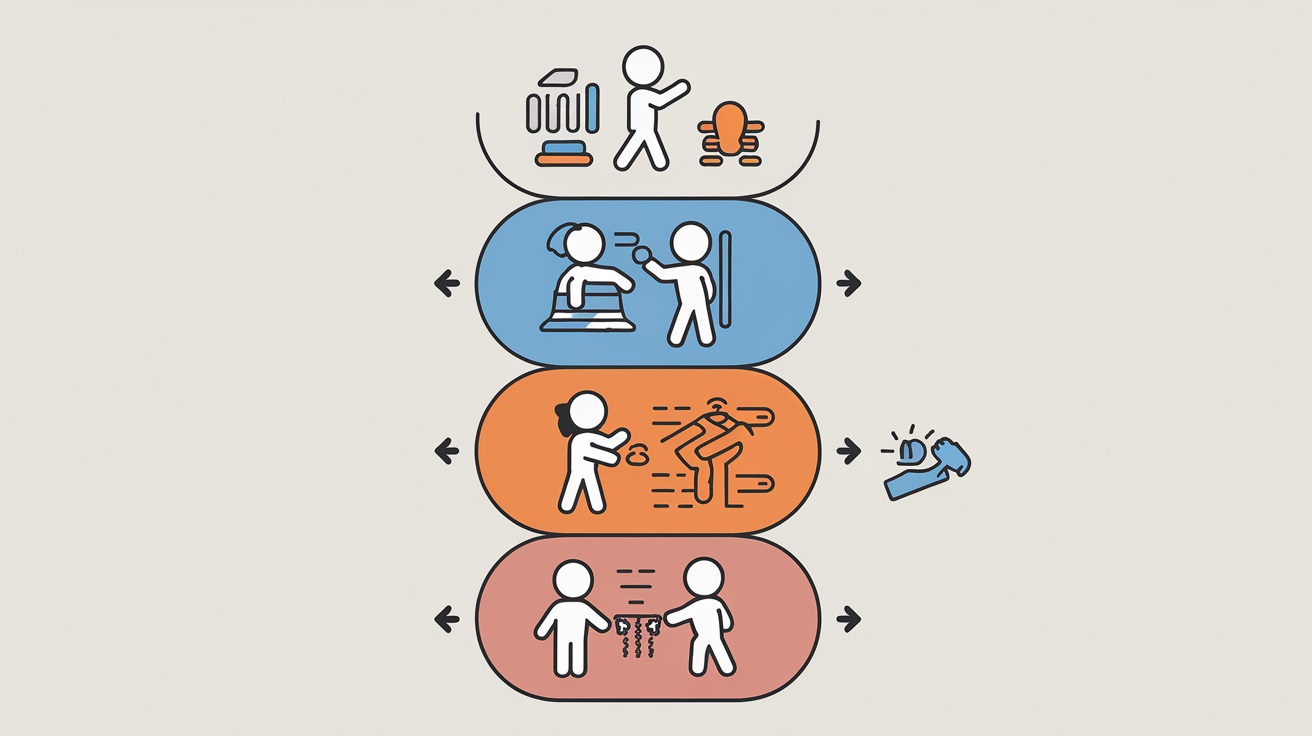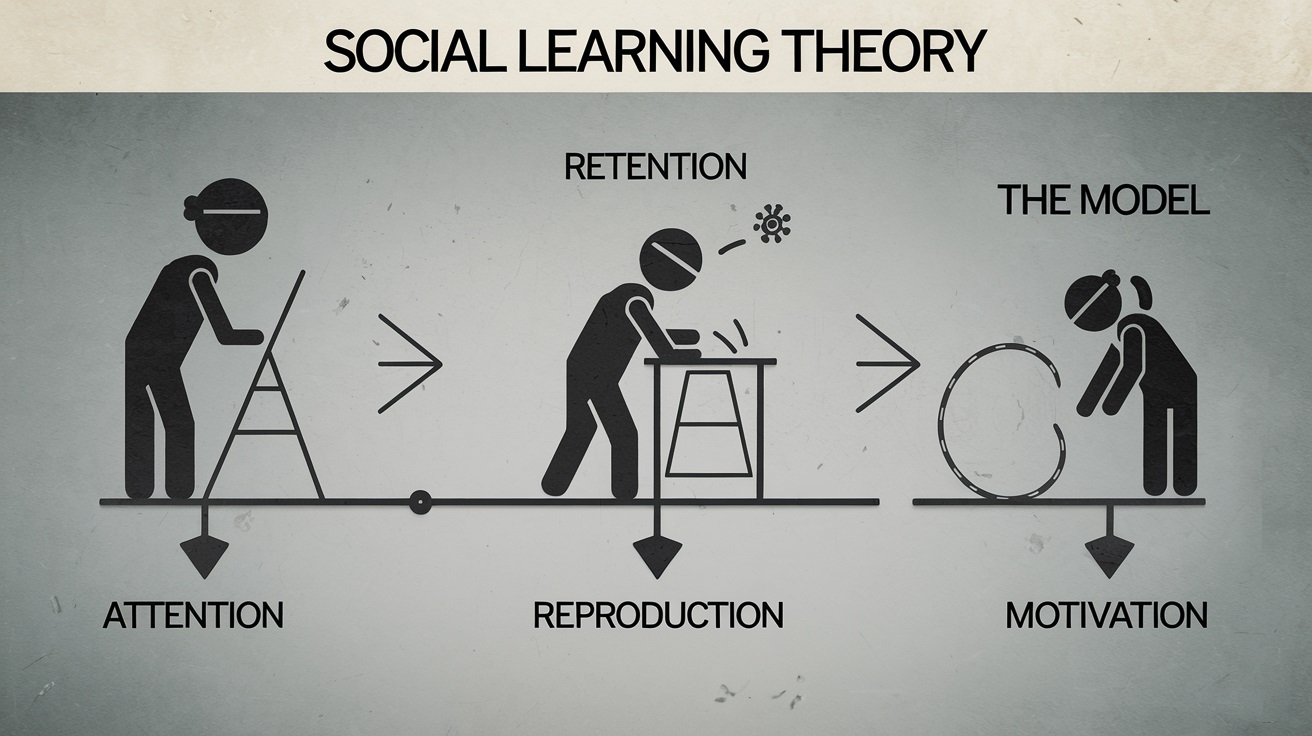
Social Learning Theory of Albert Bandura: Understanding Learning Through Observation
Introduction
Have you ever wondered why children mimic the actions they see, even when no one explicitly teaches them? Or how a student can pick up a skill simply by watching a tutorial online? The answer to these questions lies in Albert Bandura's social learning theory.
This theory illuminates how we learn behaviors and skills by observing others. Understanding this concept can transform how educators teach, parents raise their children, and even how we interact in a digital world filled with influencers and role models.
In this article, we’ll explore the core principles of Bandura's social learning theory, delve into the famous Bobo Doll Experiment, and discuss practical applications in classrooms, parenting, and beyond.
By the end, you will clearly understand how observational learning works and how to apply these insights in everyday life.
Overview of Albert Bandura and the Development of Social Learning Theory
Background on Albert Bandura.
Albert Bandura, a Canadian-American psychologist, is a pivotal figure in psychology. He is known for bridging the gap between behaviorism and cognitive psychology. His fascination with how people learn from their environment led him to develop the social learning theory.
Bandura believed that people don't just learn through direct experience but also by observing others, a perspective that challenged traditional behaviorist views.
His contributions are numerous, but the development of the social learning theory and the renowned Bobo Doll Experiment stand out. These achievements have made Bandura a cornerstone in understanding human behavior, especially in education and psychology.
The Evolution of Social Learning Theory
Social learning theory emerged from Bandura’s desire to understand how individuals acquire new behaviors without direct reinforcement. Unlike traditional behaviorism, which focused primarily on stimulus-response patterns, Bandura introduced the idea that cognitive processes like attention and retention play a crucial role in learning.
This shift highlighted that learning can happen by observing and mimicking others without direct rewards or punishments.
Critical Concepts of Social Learning Theory

Attention
Attention is the first step in observational learning. It involves focusing on a particular model’s behavior to understand the demonstration. Without attention, no learning can occur. For instance, a child watching their parent cook must pay attention to the steps involved before they can replicate the process.
Retention
Retention refers to the ability to remember observed behavior. This involves creating mental images or verbal descriptions of the observed actions, allowing the individual to store this information for later use. For example, a student might watch a teacher solve a math problem, remember the steps, and then apply the same method during a test.
Reproduction
Reproduction is the ability to perform the behavior that was observed and retained. In this stage, the individual translates what they’ve seen into action. A child might learn to ride a bike by watching their older sibling, but they must practice and reproduce those movements to master the skill.
Motivation
Motivation determines whether an individual will imitate the observed behavior. It can be influenced by direct or vicarious reinforcement—observing others being rewarded for a particular behavior can encourage imitation. For instance, if students see their classmates praised for raising their hands before speaking, they will likely adopt the same behavior.
The Bobo Doll Experiment and Its Significance
Overview of the experiment
Bandura's Bobo Doll Experiment, conducted in the 1960s, is one of the most famous studies in psychology. In this experiment, children watched adults interact with a giant inflatable toy called a Bobo doll. Some adults behaved aggressively toward the doll, hitting and shouting at it, while others acted peacefully. The children were then allowed to play with the same doll.
The findings were striking: children who observed aggressive behavior were likelier to mimic that aggression when interacting with the Bobo doll. This demonstrated that observation could lead to behavioral changes, even without direct reinforcement.
Impact on Psychology
The Bobo Doll Experiment challenged existing behavioral theories by demonstrating that learning could occur through observation. It highlighted the significant role of media and environment in shaping behavior, influencing how psychologists view aggression and the impact of media on children. Bandura's work opened new avenues in understanding how behavior can be learned indirectly, setting the foundation for social cognitive theory.
Practical Applications of Social Learning Theory
In Education
Educators can utilize social learning theory in the classroom by modeling positive behaviors, such as cooperation and respect; teachers can set an example for students to follow. Techniques like role-playing, group projects, and demonstration-based teaching methods allow students to learn through observation and interaction.
Example: A teacher demonstrating a science experiment allows students to observe and understand how to replicate the process, making learning more interactive and engaging.
In Parenting
For parents, modeling positive behaviors is crucial since children often imitate what they see at home. Actions like reading regularly, demonstrating empathy, or practicing proper manners are examples that children can observe and emulate.
Example: A parent who reads before bedtime might encourage a child to develop a love for reading simply by being a consistent role model.
In media and technology
Social learning's influence extends to media and technology in today's digital age. Platforms like YouTube and TikTok have become avenues where people can learn new skills by watching others. Increased digital learning tools and online tutorials have made Bandura's theory more relevant.
Example: A budding chef might learn a new recipe by watching a cooking video, observing techniques, and then trying them out in their kitchen.
Self-Efficacy and Role in Social Learning Theory:
Definition of Self-Efficacy
This concept is about how much confidence a person has in their ability to succeed in specific tasks or situations. It is a critical component of Bandura’s social learning theory, as observing others can enhance or diminish an individual's self-efficacy.
When people see models successfully perform a task, they are more likely to believe they can achieve the same. This belief influences their willingness to take on new challenges and persist in facing difficulties.
Examples in education
In a classroom setting, a student who sees a peer confidently solving a math problem may gain the confidence to try similar issues. Similarly, a teacher's encouragement and demonstration of problem-solving techniques can boost students' belief in their abilities.
Comparisons with Other Learning Theories
Classical and operant conditioning
Unlike classical conditioning, which focuses on associations between stimuli (Pavlov’s dogs), or operant conditioning, which emphasizes reinforcement and punishment (Skinner’s rats), Bandura’s theory gives more weight to cognitive processes.
Social learning theory considers the mental processes involved when people observe, remember, and replicate behaviors.
Cognitive Development Theories
Bandura's theory also differs from Piaget’s cognitive development theory, which emphasizes stages of individual growth. Bandura's approach is more fluid, focusing on how external factors and social interactions shape behavior throughout life.
Critical Takeaways for Practical Use
For Educators
- “Model the behaviors you wish to see in students—your actions are powerful teaching tools.”
- “Encourage peer learning through group activities and observation.”
For Parents
- “Remember, children learn from your behavior, not just your words. Be the example you wish them to follow.”
- “Use everyday moments as opportunities for teaching through observation.”
For psychology enthusiasts
- “Bandura’s work shows that we constantly learn from those around us, consciously or unconsciously. Use this knowledge to shape better interactions.”
Conclusion
Albert Bandura's social learning theory has reshaped our understanding of how learning occurs. It highlights the critical role of observation and social interactions in shaping behavior, offering valuable insights for educators, parents, and learners.
In a world where digital media plays a significant role, social learning principles are more relevant than ever. They guide how we learn from and influence one another.
By embracing these principles, you can better navigate social dynamics, encourage positive behaviors in those around you, and foster a more inclusive and effective learning environment. Whether you’re a teacher, a parent, or simply curious about human behavior, understanding the power of observational learning can change how you approach education and personal growth.
How has observation shaped your learning journey? Share your experiences in the comments below!
FAQ Section
What is Albert Bandura's social learning theory?
Bandura's social learning theory suggests that people can learn new behaviors by observing others, emphasizing the role of cognitive processes in learning.
Why is the Bobo Doll Experiment significant?
The experiment demonstrated that children could learn aggressive behaviors through observation, challenging traditional behaviorist views.
How can teachers use social learning theory in classrooms?
Teachers can use role models, demonstrations, and peer learning to encourage students to learn through observation.
What is self-efficacy, according to Bandura?
Self-efficacy refers to an individual’s belief in their ability to succeed in specific tasks, which is influenced by observing others.
How does social learning theory apply to digital learning environments?
Online tutorials and social media serve as modern tools where individuals can pick up new skills by watching and replicating digital influencers, demonstrating the theory’s relevance in today’s world.
Education Social Learning Theory

